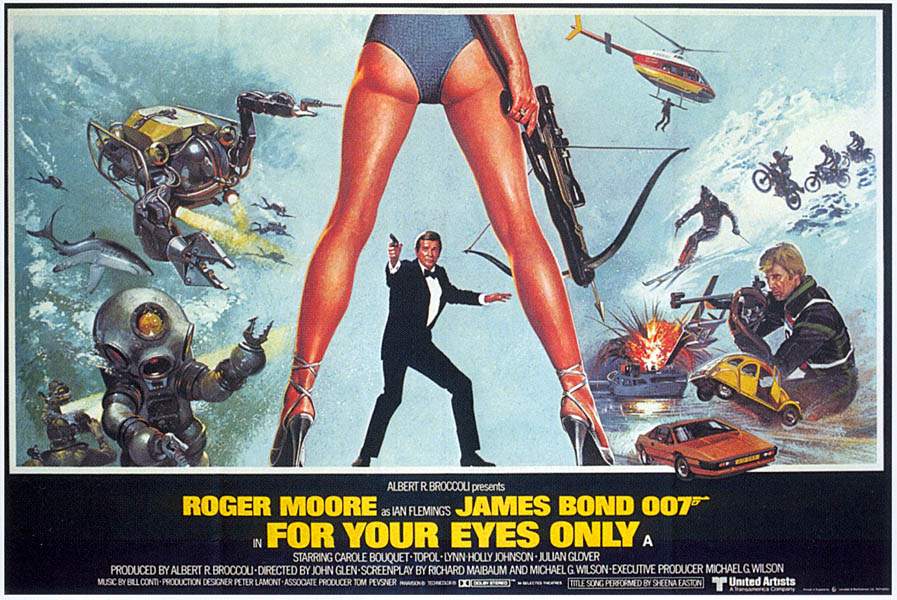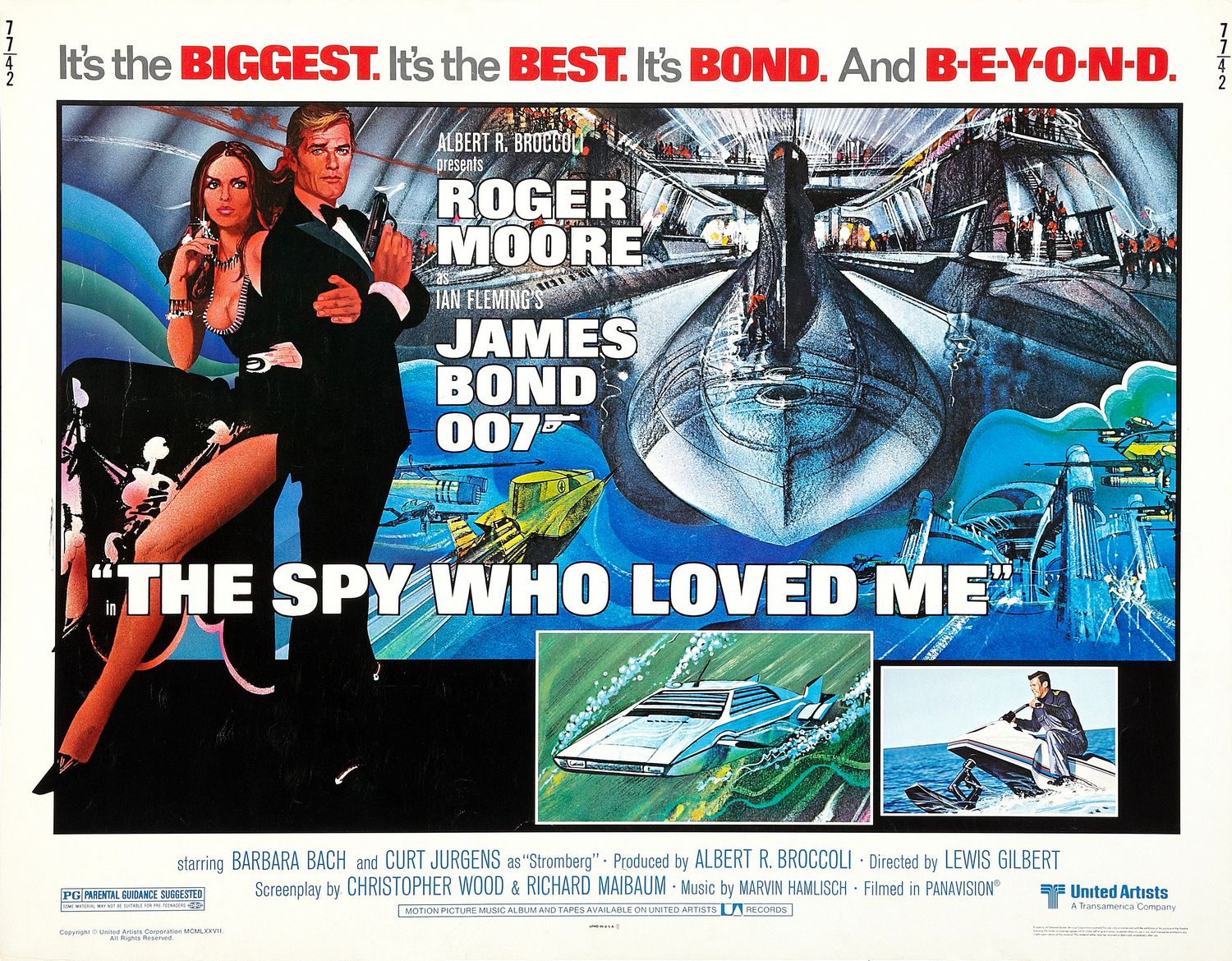I have to admit, I may be judging these films with rose-colored glasses on account of they’re the first movies I’ve seen theatrically in over three months.
Although, if they’d bored me, or outright disappointed me, I think I would have known it, and I can’t say either one did.
To the celluloid!

Directed by Richard Lester
Written by David & Leslie Newman
Cast: Christopher Reeve, Richard Pryor, Jackie Cooper, Marc McClure, Annette O’Toole, Annie Ross, Pamela Stephenson, Robert Vaughn, Margot Kidder, Gavan O’Herlihy, Stefan Kalipha, Shane Rimmer, Al Matthews, Robert Henderson, Paul Kaethler, R.J. Bell, Pamela Mandell, Robert Beatty
Soundtrack: Ken Thorne
As much crap as I give Richard Lester for his cut of Superman II (you know, the worse one), because his vision for the film is like a virus eating away at Richard Donner’s verisimilitude, I have to say, given a chance to make a Superman movie from start-to-finish, Lester does a pretty good job with Superman III.
Whereas Donner’s Superman strives for something more timeless and epic, Lester’s Superman III feels ripped straight from the pages of the comic books, and that’s okay.
One of the criticisms of modern Superman films is that we don’t see enough of Superman doing Superman things, namely saving people, but that’s definitely not a failing of Superman III. The first act alone features one of the great set-pieces in the whole franchise, when Clark Kent and Jimmy Olsen’s bus ride to Smallville gets interrupted by a chemical plant fire, and it’s up to Superman to save the day. Is it entirely realistic? Hardly. Does it matter? Not in the least. It’s exciting, and thanks to the practical effects, there’s a real sense of danger.
Speaking of Smallville though, one of the story threads involves Clark returning to his hometown for his high school reunion, where he reunites with former head cheerleader Lana Lang (played by the positively lovely Annette O’Toole). Now a single mom and one of the few members of their graduating class stuck in their old hometown, she’s nevertheless still the apple of Clark’s nerdy eye. If nothing else it makes for a nice change-up to the Lois Lane romance of the previous two films, but I actually really enjoy how Lester handles their meet cute. It’s a stylistic touch that feels unique for a Superman film.
Of course, I’d be remiss if I didn’t talk about the biggest star opposite Christopher Reeve, that being Richard Pryor. It feels like a bit of stunt-casting, but honestly, given the tone of the film, I think his character fits in fine (he’s not nearly as much of an albatross as some of the 90s Batman movie villains). I also find it interesting that his introduction, which is the cold open of the film, takes us down to the “street level” of Metropolis in a way most superhero films don’t do (or try to but bungle it).
One aspect of the film that may be more influential than we know (which is to say I can’t prove it) is Robert Vaughn’s character of Ross Webster, a corrupt business magnate. Not until John Byrne’s The Man of Steel limited comic book series in 1986 did the character of Lex Luthor become a similar tycoon, so I can’t help but wonder if the villain of Superman III had some effect on that decision.
To circle back to the director though, Lester giveth and Lester taketh away. The major weakness of the film is the level of camp that Donner rightfully rejected during his tenure, and which Lester plays up to unforgivable degrees at times, perhaps best summed up by putting the main titles over a Rube Goldberg slapstick sequence rather than out in space as usual. Interesting as the scene may be unto itself, it does the movie no favors.
At the end of the day though, the biggest strength of the film, as you might expect, is Christopher Reeve as Superman, and it’s nice to see him explore some new territory with the character in the second act (concluding with the famous junkyard fight).
It’s clearly not the best Superman movie, but honestly, I think Superman III is better (or at least more cohesive) than the theatrical version of Superman II. It’s certainly worth seeing for fans of the character, but it has a decent amount of appeal for general audiences, too (though there is one scene that’s rather horrifying, especially if you don’t know it’s coming, so be forewarned).
Rating: ★★★½ (out of five)

Directed by Sidney J. Furie
Written by Christopher Reeve (story), Lawrence Konner & Mark Rosenthal (story & screenplay)
Cast: Christopher Reeve, Gene Hackman, Jackie Cooper, Marc McClure, Jon Cryer, Sam Wanamaker, Mark Pillow, Mariel Hemingway, Margot Kidder, Damian McLawhorn, William Hootkins, Jim Broadbent, Stanley Lebor, Don Fellows, Robert Beatty, John Hollis, Eugene Lipinski, Susannah York
Soundtrack: Alexander Courage
Superman IV: The Quest for Peace is often regarded as one of the worst movies ever made, and I am here to call B.S. on that notion, because it’s not even the worst Cannon film I’ve ever seen (in fact, I’d put it among the more watchable entries in Golan-Globus’s output).
No, I won’t even call Superman IV a bad movie, because it’s ultimately a sadly incomplete film. It could have gone down with Star Trek IV: The Voyage Home and Mission: Impossible – Ghost Protocol as one of the great Fours in movie history, but Cannon just wouldn’t give it the budget it deserved. To put it in perspective, the first two films cost over $100 million altogether, Superman III was made for $39 million, and even 1984’s Supergirl got $35 million, but somehow Superman IV was expected to subsist on a budget less than half that ($17 million).
This budgetary failing is largely bared out where a film like this should shine, in the action and effects, but those with a keen eye for filmmaking can spot the paucity in plenty of other areas; not to mention there’s basically no transition into the third act.
Surprisingly though, one area of strength for the movie is the musical score. Much like Ken Thorne’s music for II and III, Alexander Courage’s score (yes, the guy who wrote the original Star Trek theme) is largely ported from John Williams’ original Superman music, but, for one thing, it just sounds better than the scores from the previous two entries, and, secondly, I think Courage is more successful than Thorne in venturing off into his own territory.
Sadly though, no one but the financiers could truly save this movie. Yes, it has it’s own failings, like Superman putting the Great Wall back together with…Repair-Vision? But, honestly, I think the intended screenplay is actually pretty tight, and we do get to see all of our favorite Daily Planeteers one last time, along with Gene Hackman as Lex Luthor, and that’s not nothing.
And of course, Christopher Reeve is still Superman, which is definitely something, once again showing off his true superpower: his desire for good.
Rating: ★★★☆☆
P.S.
Shout-out to the crew at the Mahoning Drive-In in Lehighton, PA. They put on a great show.
P.P.S.
Though I’ve been on a writing hiatus, I got to jump on the Cooler Than Ecto podcast and talk Pierce Brosnan’s tenure as James Bond. It was a lot of fun recording and I hope to be on again sometime.
Check it out here:
https://podcasts.apple.com/us/podcast/pierce-bronsnan-007-series-retro-review/id1309133613?i=1000477572780







